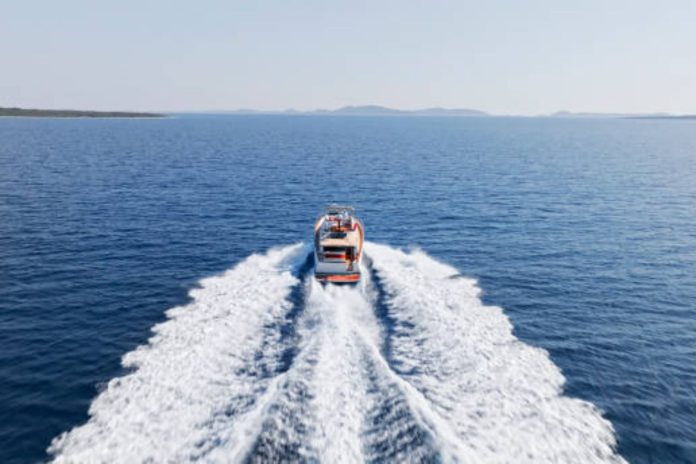Cruising is rapidly evolving, offering more innovative and accessible experiences than ever before. With passenger numbers projected to soar and cruise lines unveiling futuristic ships, the industry is undergoing a profound transformation. From sustainability initiatives to tech-driven upgrades, new trends are shaping how we’ll experience life at sea. Exploring these changes now isn’t just interesting—it’s essential for planning your next adventure or understanding the future of travel.
Sustainability in Cruising
As the cruise industry grows, addressing ecological concerns has become critical. Cruise ships, essentially floating cities, were once scrutinized for their environmental impact. Today, sustainability is a cornerstone of the industry’s future, with exciting innovations paving the way for greener cruising experiences.
Eco-Friendly Fleet Innovations
Modern cruise ships are transforming into sustainable marvels. Leading cruise lines are adopting cleaner fuel sources, such as liquefied natural gas (LNG) and biofuels, significantly reducing greenhouse gas emissions. Hybrid propulsion systems, advanced waste management, and water treatment technologies are also becoming standard, making ships more energy-efficient and environmentally friendly.
Notable eco-friendly advancements include:
- LNG-powered ships: A cleaner alternative to traditional marine fuels.
- Shore power capabilities: Reducing emissions by connecting to local grids at ports.
- Dynamic positioning systems: Protecting marine ecosystems by minimizing anchoring.
Some companies are even prototyping hydrogen-powered vessels and integrating solar panels to achieve a net-zero future by 2050.
Responsible Tourism Practices
Cruise lines are rethinking their impact on the destinations they visit. Mass tourism can strain ecosystems and local communities, but the rise of responsible tourism practices is changing this narrative. By partnering with local organizations, cruise lines now promote sustainable tourism in port cities, often limiting visitor numbers and supporting conservation efforts.
Examples of responsible tourism practices include:
- Wildlife-friendly excursions that respect natural habitats.
- Collaborations with local governments to preserve cultural heritage.
- Reducing single-use plastics onboard and onshore.
These initiatives not only protect the planet but also foster meaningful connections between travelers and local communities.
Digital Transformation in Cruises
Technology is revolutionizing cruising, creating smarter, more connected experiences for passengers. From faster internet to AI-driven personalization, modern cruises are becoming tech-savvy adventures.
Enhanced Onboard Connectivity
Gone are the days of being disconnected at sea. Cruise lines now offer high-speed internet via technologies like SpaceX’s Starlink and hybrid satellite systems, enabling streaming, video calls, and even remote work onboard.
Improvements include:
- Low-Earth Orbit (LEO) satellites for low-latency internet.
- Hybrid networks blending satellites with onboard Wi-Fi for better coverage.
- Expanded service zones, ensuring connectivity even in remote locations.
Cruise apps powered by this connectivity let passengers book excursions, track luggage, and manage dining preferences seamlessly.
Smart Ship Technology
Today’s cruise ships are smart ecosystems equipped with AI and the Internet of Things (IoT). These features elevate passenger comfort and convenience:
- AI-driven concierges provide real-time suggestions.
- IoT sensors manage room temperatures and detect maintenance needs.
- Wearable tech simplifies boarding and onboard payments.
These technological innovations create personalized and hassle-free experiences for modern cruisers.
Millennial and Gen-Z Travelers
Millennials and Gen-Z are reshaping cruising, emphasizing meaningful, adventurous experiences. This younger demographic values cultural immersion and digital accessibility, pushing cruise lines to innovate.
The Rise of Experiential Cruising
Millennials and Gen-Z seek unique, high-energy activities both onboard and at ports. To meet these demands, cruise lines offer:
- Themed cruises, such as music festivals or wellness retreats.
- Adrenaline-pumping activities, like ziplining and skydiving simulators.
- Cultural excursions, such as cooking classes with local chefs.
These travelers favor short, budget-friendly trips filled with shareable, Instagram-worthy moments.
Social Media’s Influence
Social media platforms like Instagram and TikTok heavily influence cruise choices. Viral videos showcasing infinity pools, gourmet dining, or eco-friendly initiatives can lead to record bookings. Cruise lines collaborate with influencers to highlight their offerings, inspiring younger audiences to embark on these adventures.
If capturing envy-worthy content is part of your travel goals, cruising offers endless opportunities to create memorable posts.
New Cruise Destinations
Cruise lines are charting courses to less-traveled ports, providing intimate experiences in hidden gems. This trend reflects travelers’ desires to explore diverse cultures and landscapes while avoiding over-tourism.
Undiscovered Ports of Call
More ships are visiting destinations like:
- Bergen, Norway: Famous for its breathtaking fjords and vibrant wooden houses.
- Salalah, Oman: A lush oasis with pristine beaches and rich Middle Eastern culture.
- Antigua and Barbuda: A serene Caribbean alternative with stunning beaches.
By supporting local economies and offering authentic cultural exchanges, these destinations create unforgettable travel memories.
For tips on planning your next cruise, explore Passports and Footprints, your go-to resource for unique travel insights and hidden gems around the globe.
Future Ships and Their Features
The next generation of cruise ships promises cutting-edge amenities, sustainable designs, and innovative technologies.
Cutting-Edge Amenities
Expect future cruise ships to feature:
- Smart cabins with personalized climate control.
- Virtual reality zones for immersive entertainment.
- Eco-friendly technologies, like onboard water purification systems.
- Gastronomic experiences, from Michelin-starred dining to culinary classes.
These features blend luxury with sustainability, creating unparalleled travel experiences.
Innovative Ship Designs
Future ships will showcase:
- Nature-inspired interiors with greenery and water elements.
- Sustainable materials like reclaimed wood for eco-conscious construction.
- Panoramic views through floor-to-ceiling windows for breathtaking ocean vistas.
These designs promise to redefine comfort and elegance at sea.
Conclusion
The future of cruising is one of innovation, sustainability, and personalization. From eco-friendly practices to tech-enhanced voyages, the industry is poised to offer travelers unforgettable experiences.
Whether you’re drawn to adventure, relaxation, or cultural exploration, cruising through 2029 promises something for everyone. Ready to plan your dream cruise? Start your journey with insights from Passports and Footprints and embark on an unforgettable adventure.








